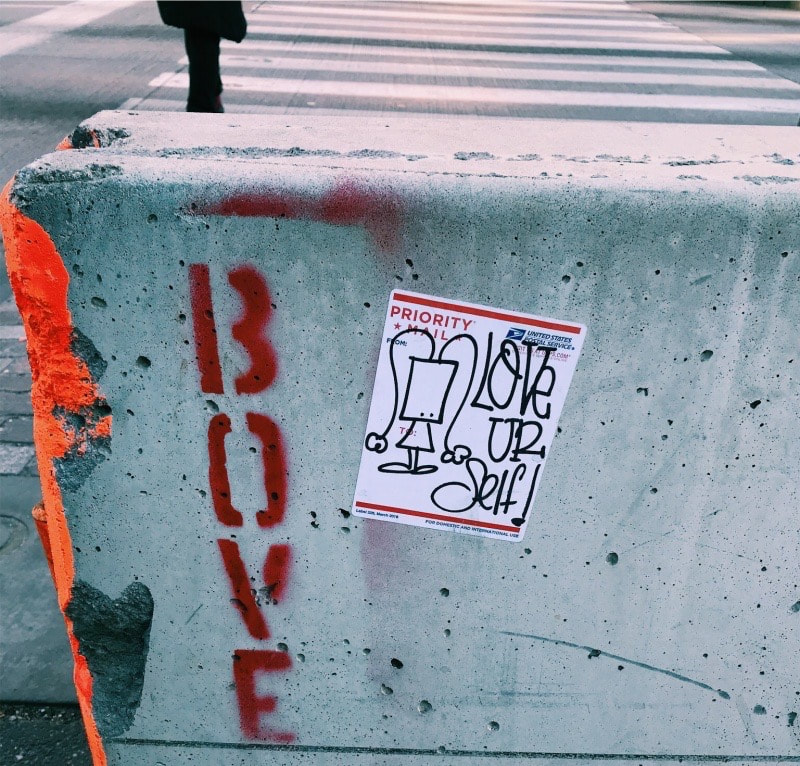Body positivity in the age of COVID-19
By Natalie Drum
October 21, 2020
Image Credit: Natalie Drum for The Campus Trainer
It is not surprising to hear that the pandemic has had a negative impact on our nation's mental health. In July, 53 percent of adults in the U.S. said the pandemic had negatively impacted their mental health, up 39 percent from May, according to a Kaiser Family Foundation poll.
Our mental health is important now more than ever, said Jenna Hollenstein, a New York City based nutrition therapist. Hollenstein believes this is a very difficult time for body positivity, as well.
“This is not a normal time and so we have to be a little flexible in the way we are responding to ourselves during this time,” Hollenstien said. “It’s a completely new way of thinking about weight and weight gain in this situation of the pandemic.”
At the beginning of quarantine, Ciara Ryan, a junior marketing and management major at the University of Maryland, thought she would use her time during quarantine to work on her body, eat healthy and exercise.
“But it got harder,” Ryan said. “Quarantine has been such a long period of time, I feel like I went from being happy about my body, to eventually being lazy and upset with my body.”
Having bad body image days is normal especially now during the pandemic, said Hollenstein who acknowledges that she and her colleagues have days where they don’t feel great about their bodies, for one reason or another.
“The point of body positivity is not to always feel good about your body, but to be able to take care of your body and treat it with respect, no matter how you feel about it,” Hollenstein said.
Mya Zepp, a junior journalism and government politics double major, tries to be mindful of what she is eating and how often she is exercising.
“This helps me to be positive,” Zepp said. “If I know I am trying, then to be honest, I don’t really care what I look like in the moment, because I am trying my hardest, and for me that is all that matters.”
Hollenstein encourages people to engage in some type of movement, as much as they can, in a safe way. Movement, not for weight management reasons but for mental health is an incredibly effective stress reliever and antidepressant, Hollenstein said.
For Calvin Penaflor, a junior studying civil engineering, exercising has gotten a lot more difficult during quarantine. Penaflor said he has focused more on healthier eating when creating the body that he wants to have.
“Sometimes I would go to a farmer’s market, pick out random vegetables and tell myself I’m going to learn how to cook with this,” Penaflor said.
We have more time to focus on our body when we are isolated, and many of our daily activities have been halted, said Jane Jakubczak, a registered nurse and licensed dietitian nutritionist at the University of Maryland Health Center.
“With all the stress of these times, we can end up projecting these negative emotions onto our body,” Jakubczak said. “Working with a mental health professional can help sort through some of these emotions and provide us with healthy tools to manage the stress and uncertainty we are experiencing.”
Penaflor said his mental health during this time has benefitted from using the mental health services through the University of Maryland.
Hollenstein urges people to seek out sources of support to combat stress relief and mental health, recommending people reach out to a therapist, counselor or even joining a meditation group.
“I think the most important thing is to be happy with yourself,” Zepp said. “Do what works for you.”
Our mental health is important now more than ever, said Jenna Hollenstein, a New York City based nutrition therapist. Hollenstein believes this is a very difficult time for body positivity, as well.
“This is not a normal time and so we have to be a little flexible in the way we are responding to ourselves during this time,” Hollenstien said. “It’s a completely new way of thinking about weight and weight gain in this situation of the pandemic.”
At the beginning of quarantine, Ciara Ryan, a junior marketing and management major at the University of Maryland, thought she would use her time during quarantine to work on her body, eat healthy and exercise.
“But it got harder,” Ryan said. “Quarantine has been such a long period of time, I feel like I went from being happy about my body, to eventually being lazy and upset with my body.”
Having bad body image days is normal especially now during the pandemic, said Hollenstein who acknowledges that she and her colleagues have days where they don’t feel great about their bodies, for one reason or another.
“The point of body positivity is not to always feel good about your body, but to be able to take care of your body and treat it with respect, no matter how you feel about it,” Hollenstein said.
Mya Zepp, a junior journalism and government politics double major, tries to be mindful of what she is eating and how often she is exercising.
“This helps me to be positive,” Zepp said. “If I know I am trying, then to be honest, I don’t really care what I look like in the moment, because I am trying my hardest, and for me that is all that matters.”
Hollenstein encourages people to engage in some type of movement, as much as they can, in a safe way. Movement, not for weight management reasons but for mental health is an incredibly effective stress reliever and antidepressant, Hollenstein said.
For Calvin Penaflor, a junior studying civil engineering, exercising has gotten a lot more difficult during quarantine. Penaflor said he has focused more on healthier eating when creating the body that he wants to have.
“Sometimes I would go to a farmer’s market, pick out random vegetables and tell myself I’m going to learn how to cook with this,” Penaflor said.
We have more time to focus on our body when we are isolated, and many of our daily activities have been halted, said Jane Jakubczak, a registered nurse and licensed dietitian nutritionist at the University of Maryland Health Center.
“With all the stress of these times, we can end up projecting these negative emotions onto our body,” Jakubczak said. “Working with a mental health professional can help sort through some of these emotions and provide us with healthy tools to manage the stress and uncertainty we are experiencing.”
Penaflor said his mental health during this time has benefitted from using the mental health services through the University of Maryland.
Hollenstein urges people to seek out sources of support to combat stress relief and mental health, recommending people reach out to a therapist, counselor or even joining a meditation group.
“I think the most important thing is to be happy with yourself,” Zepp said. “Do what works for you.”
Image Credit: Natalie Drum for The Campus Trainer
|
|
Learn more |
© COPYRIGHT 2020. ALL RIGHTS RESERVED.
|

